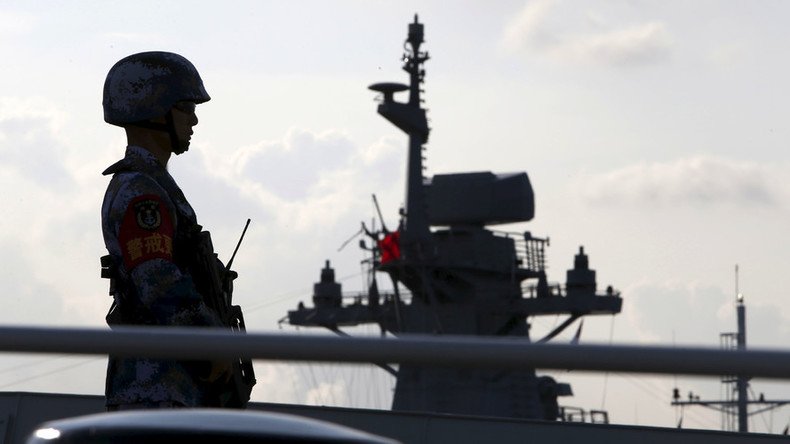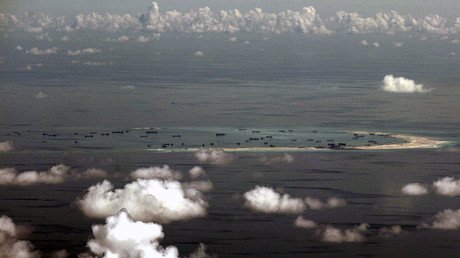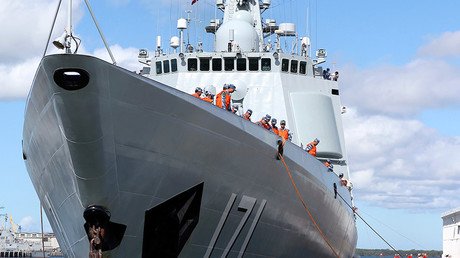Beijing announces S. China Sea drills, warns foreign navy patrols could end in ‘disaster’

Beijing has announced that it is closing off part of the South China Sea for military exercises this week, warning that freedom of navigation patrols by foreign navies could end “in disaster.”
Hainan’s maritime administration said an area southeast of the island province would be closed from Monday to Thursday, but failed to give any details about the nature of the exercises, AP reported. The navy and Defense Ministry gave no immediate comment.
The announcement came during a three-day visit to China by US Chief of Naval Operations Admiral John Richardson to discuss the South China Sea dispute and ways to increase interaction between the two militaries, which continue to have a tense relationship.
Beijing also stated on Monday that it would not halt the construction on islands and reefs in the South China Sea, state news agency Xinhua reported the head of the country’s navy as saying, adding that China will not leave the outcropping that is under construction half finished.
However, despite the meeting between the US and Chinese militaries, Sun Jianguo, an admiral and deputy chief of the Joint Staff Department of China’s Central Military Commission, said behind closed doors on Saturday that freedom of navigation patrols by foreign navies in the South China Sea could end “in disaster,” according to comments seen by Reuters on Monday.
“When has freedom of navigation in the South China Sea ever been affected? It has not, whether in the past or now, and in the future there won’t be a problem as long as nobody plays tricks,” Sun said.
“But China consistently opposes so-called military freedom of navigation which brings with it a military threat, and which challenges and disrespects the international law of the sea,” Sun added.
“This kind of military freedom of navigation is damaging to freedom of navigation in the South China Sea, and it could even play out in a disastrous way,” he said, without elaborating.
The comments are seen as a warning to the US, which has conducted such patrols close to Chinese-held islands over the past year. Those patrols prompted Beijing to send fighter jets and ships to track and warn off the American ships, while accusing the US of threatening its national security.
Victor Gao, director of the China National Association of International Studies, told RT that he believes the US was “very much involved in this arbitration case brought by the Philippines...trying to put pressure on China.”
“China will stand firm on the matter of principle and China will also use all military resources to make sure that the US will not win this battle against China,” he said.
China’s Monday statements come after a ruling by an arbitration court in The Hague found last week that China’s claims to almost all of the South China Sea are invalid. The court also ruled that Beijing has breached Philippine sovereignty by endangering its ships, fishing, and oil projects in the disputed sea.
Beijing responded by reiterating that the islands in the South China Sea are “China’s inherent territory,” adding that it could declare an air defense identification zone over the waters if it felt threatened.
In an apparent act of defiance to the verdict, China landed two civilian aircraft on new airstrips on the disputed Mischief and Subi reefs and dispatched its coast guard to block a Philippine fishing boat from reaching a contested shoal.
Beijing lays claim to almost all of the South China Sea, despite conflicting partial claims of Brunei, Malaysia, Vietnam, Taiwan, and the Philippines. China has reportedly built military installations on reclaimed islands, including runways and missile launchers.













